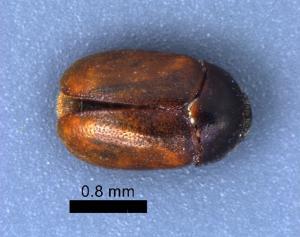
ROMULUS, Mich. – U.S. Customs and Border Protection (CBP) agriculture specialists at Detroit Metropolitan Airport discovered Khapra beetle remains during inspections of unaccompanied international baggage in June—a local first for fiscal year 2023.
Upon reentry into the U.S., routine x-ray screenings of the baggage revealed a bag of rice that originated in India. Further examination of the rice yielded the remains, which were later identified by CBP and U.S. Department of Agriculture officials.
“Khapra beetles are not native to the U.S. and its introduction could have dire economic consequences,” said Area Port Director Robert Larkin, Detroit Metropolitan Airport. “We take the threat of such an infestation very seriously and our agriculture specialists work diligently to prevent it.”
The Khapra beetle, native to South Asia, is one of the world’s most destructive pests of stored grain products and seeds, and previous U.S. detections have required massive, long-term, and costly control and eradication efforts. The beetle can survive without food for long periods, requires little moisture, hides in tiny cracks and crevices, and is relatively resistant to many insecticides and fumigants.
Many agriculture products are prohibited entry into the United States from certain countries because they may carry plant pests and foreign animal diseases. Travelers are encouraged to learn more about current regulations before attempting to bring certain items into the United States to avoid penalties, seizures, and even arrest.








